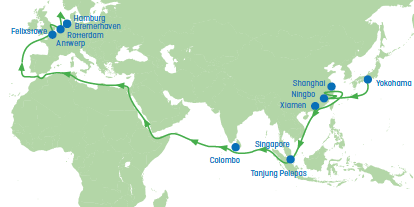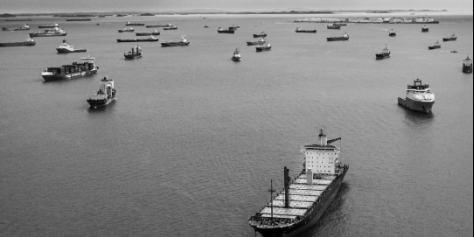The construction of a green methanol plant in the Port of Huelva, the result of collaboration between Cepsa and C2X, a Maersk subsidiary, marks a milestone in the energy transition of the maritime sector. This project is integrated into a broader context: the consolidation of the Strait of Gibraltar as a key energy hub for the supply of sustainable fuels
The new Clydebank Declaration, presented on Wednesday at the UN COP26 meeting in Glasgow, backed by the United States, the United Kingdom, Japan, Norway and 15 other countries, aims to have at least six "green maritime corridors in place. "by" the middle of this decade "and develop" more and greater "routes by 2030.
The decarbonization of ships is actually the decarbonization of the bunkering. As the world's number one fueling port, Singapore has a vital role to play in the process. Successive Singapore governments, NGOs, and other agencies have supported a number of initiatives to move the nation and industry on the zero carbon path.
The Charter on the Shipping of Goods sets a new benchmark for responsible shipping, transparent climate reporting and improved decision-making in line with the United Nations decarbonization goals. A group of the world's largest energy, agriculture, mining and commodity trading companies will assess and disclose the climate alignment of their shipping activities for the first time.
Trafigura, one of the largest ship charterers in the world, proposes that the International Maritime Organization introduce a carbon tax of between $ 250 and $ 300 per metric ton of CO2 equivalent in fuels for shipping, in order to low and zero carbon fuels are more economically viable and more competitive.
The 5th World LNG Bunkering Summit will take place in the city of Hamburg on 9-10 November 2021, following four successful editions in Amsterdam. The conference boasts representation from across the LNG bunkering value chain and provides a platform for the global LNG bunkering community to convene and share stories to ensure the industry can continue to push forward. LNG as a bunker fuel remains high on the agenda for many of the world's largest energy players, and a key element in the drive for decarbonisation and environmental sustainability of the shipping industry.






